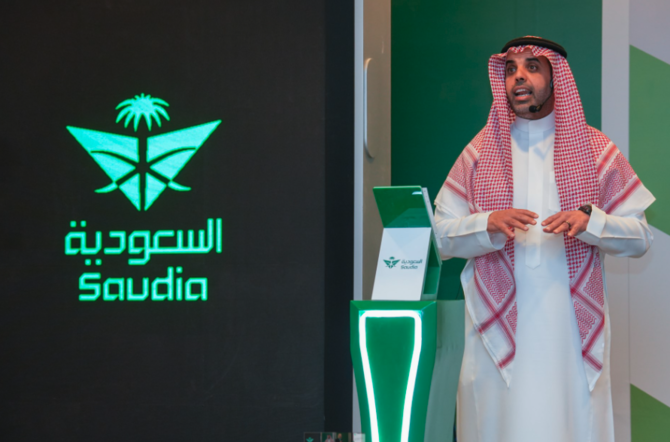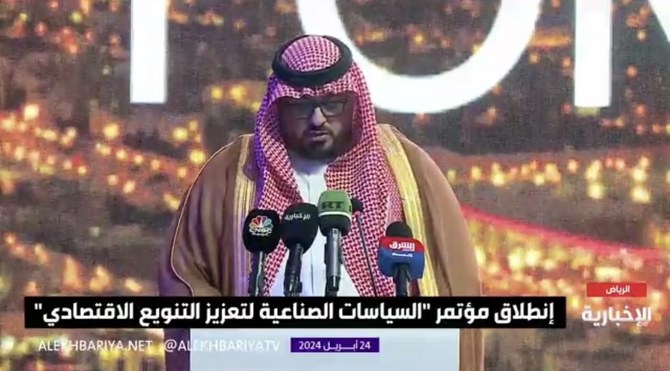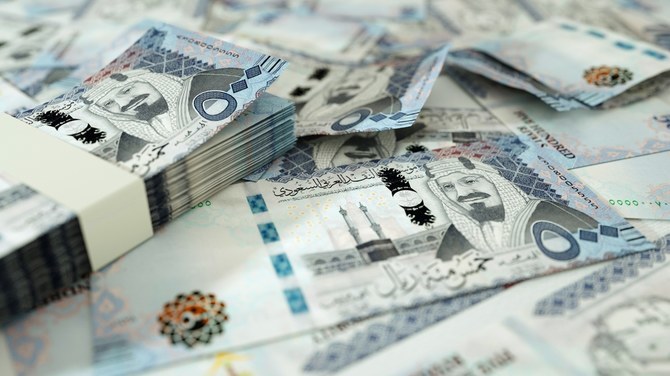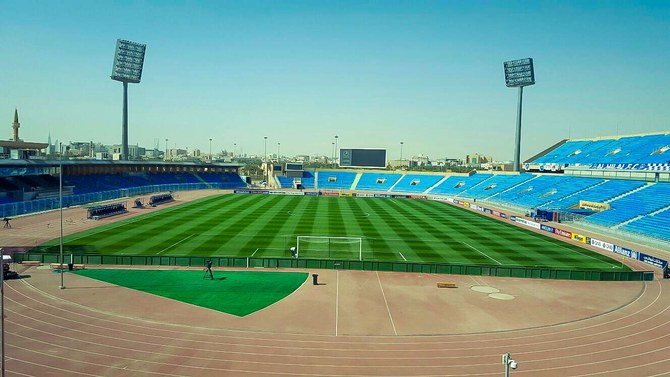DUBAI: The law is a tough profession. In Saudi Arabia, it has its own particular challenges. To be a woman in that environment is especially demanding.
Basma Khashoggi has met those challenges and overcome them. She is head of the Jeddah office of DLA Piper, one of the biggest law firms in the world, and has made it in what for many years was regarded as the ultimate “man’s world.” It all started almost by accident.
“There’s a perception of lawyers that they’re all hard-working and dedicated people, but my ambition really grew out of being bored at school and asking the teachers lots of questions all the time,” she told Arab News.
“The other students called me ‘the lawyer’ because I guess it seemed like I was cross-examining the teachers, and that was the start of it,” she said.
“I have a second cousin who’s a lawyer, but there’s no real tradition of law in my immediate family.”
But Khashoggi had to leave the Kingdom to realize her ambitions. “I went to study in England because at that time law wasn’t taught at Saudi universities to females, and when I came back to Saudi Arabia the Justice Ministry still hadn’t licensed women to be lawyers,” she said.
“But that challenge presented opportunities. In order to progress with my career, I prepared and passed the bar exam in New York. Coincidently, I got licensed six years ago in both jurisdictions in the same month.”
That puts Khashoggi in a unique position to comment on the big changes going on in the Kingdom and in its fast-changing legal system.
She is one of a growing number of Saudi women who have chosen the law as their career, and who are changing the perception of the legal profession within Saudi Arabia.
“I’m by no means the first female lawyer who has had to adapt to a male-dominated industry. The profession is becoming much more comfortable with the idea. The chief legal counsel to the Public Investment Fund (PIF) is a female, for example,” Khashoggi said.
“The clients are also becoming more used to the idea of being served by Saudi female lawyers, which may have not aligned with their previous perceptions of Saudi females.”
BIO
Born: Jeddah
Education
- University of Essex, bachelor of law.
- School of Oriental and African Studies, London, master of international and commercial law.
- New York Bar.
Career
- Senior legal consultant.
- DLA Piper, legal director and head of Jeddah office.
Khashoggi is finding it challenging to keep pace with the changes that are rolling across the Kingdom as the Vision 2030 reform plans unfold.
“I guess one of the biggest differences that’s apparent now is that I can drive — except that I don’t. I just haven’t found the time to get a license, but I intend to sometime soon,” she said.
“What I think is more significant about the changes under Vision 2030 is that they’ve been across the board, not just confined to certain sectors. They’ve been economic and financial but also social and cultural, affecting all areas of a citizen’s life,” she added.
“Saudi people are allowed to experience the changes themselves, directly. It feels like it’s part of a much larger plan to transform society, which of course it is.”
Some conservative critics have suggested that the changes are coming too fast for a traditional society, but Khashoggi disagrees.
“I’m from the generation that came just before what’s now the largest demographic, the under 25s. A majority of people now want the changes to take place as quickly as possible,” she said.
“Some people will be opposed to the changes, but I don’t really think they’re in a majority or even a big minority,” she added.
“Young people now have far more access to information, via the internet and social media, than my generation ever had. The Saudi Arabia I grew up with isn’t the one that they’ll know in the future.”
The law has had to adapt fast to keep up with the huge social, cultural and economic changes under way. Can it change fast enough?
“The government is preparing the people for change via different building blocks of the social and economic system, and one of them is legislative reform,” Khashoggi said.
“There have been new laws virtually every month, but it has been an interactive process, designed to get feedback from the public on the proposed changes,” she added.
“For example, we’ve seen legislating via public consultation in the medical field due to its technical nature. Previously, the Health Ministry would go to the pharmaceutical industry to consult about the proposals, but now most ministries will consult all the relevant stakeholders in their respective fields,” she said.
“There has been a raft of new laws in the corporate sector — a bankruptcy law, new company law, procurement law, arbitration and resolution laws. It has been challenging trying to keep up with it all.”
Privatization of the previously dominant government sector has been one of the areas prioritized under Vision 2030, but some critics complain about a lack of progress in selling off state-owned industries. Khashoggi thinks it will all come in time.
“There has been a long period of preparation for new privatization laws, and it’s essential to get this right, so although the law hasn’t been issued, there has been a lot of work going on behind the scenes,” she said.
“There’s already a process in place for privatization in water, electricity, airports, and other parts of the industrial infrastructure,” she added.
“The Saudi Aramco privatization will, I’m sure, have a positive impact on the whole economy and financial scene, but I don’t think the rest of the privatization program is dependent on that.”
It all makes for a booming legal sector, and DLA Piper — which operates in the Kingdom in partnership with local law firm Amer Al-Amr — is well placed to take advantage of that.
“I think hospitality, health care and education are likely areas under the transformation plans, and will see early activity as a direct result of the demographic makeup of the Kingdom,” Khashoggi said.
“In education, for example, there will be consolidation as a national scheme is rolled out across the Kingdom. People who own one or maybe two schools will want to merge them with other bigger groups, and there will be a significant increase in M&A (mergers and acquisitions) activity. The same applies to hospitals,” she added.
“There will also be an increase in foreign investment into these areas and some of the other big projects. An international law firm like DLA Piper is well placed to benefit from the opportunities this will present.”
One contentious area has been the idea that the huge megaprojects — such as Neom, the Red Sea Development and Al-Qiddiya leisure park — will be governed by a semi-autonomous legal infrastructure outside the Kingdom’s Shariah system.
“I have no direct knowledge of this, and I think the legal setup of these projects is still being considered, but due to the fundamental changes occurring to the existing legal structure of the Kingdom, I doubt autonomy to be granted across the board will be necessary,” Khashoggi said.
“It’ll probably be on a project-by-project basis, to ensure that these new areas are governed separately and properly,” she added.
“I don’t think it’ll be an issue if the plans are well thought through. I don’t think they’ll have an entirely separate legal structure,” she said.
“There’s precedent here, with the industrial cities and other special economic zones that have been set up already, which have case-by-case variations from the existing structure, but to a lesser scale.”
Saudi Arabia’s big drive is to encourage foreign investors to back its ambitious plans, and confidence in the legal system is essential to attract that.
“I think what potential foreign investors in Saudi Arabia want is evidence that the law is being applied impartially, and clarity on what the law is, much the same as in any jurisdiction,” Khashoggi said.
“The recent changes in the legal structure, in my view, shed more light on the legal structure. More law means more transparency, and that’s what foreign investors want.”
The law, like many areas of life in Saudi Arabia, is changing so fast that the people involved in the transformation — such as Khashoggi — often do not have time to take a breath.
“Without a doubt, the biggest challenge I face is the work-life balance. I’m always trying to juggle the needs of clients with my own,” she said. “But it’s a good problem to have — it means I’m busy.”




















